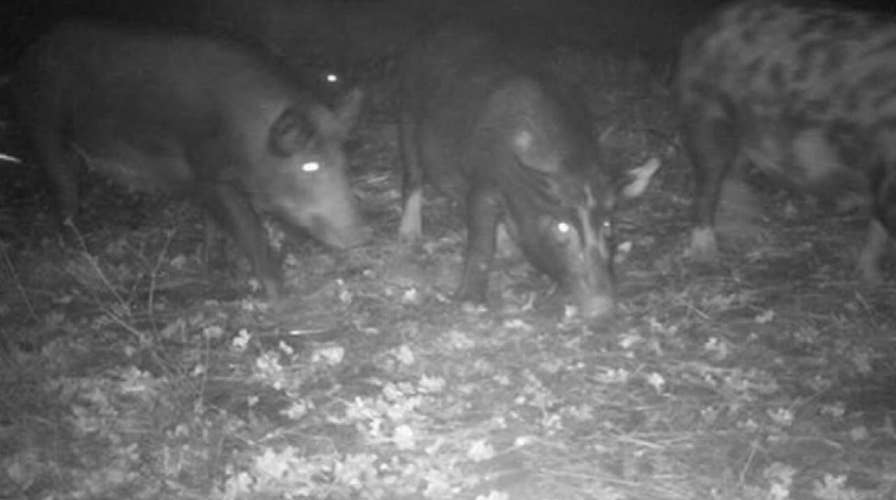Feral pigs that invaded California city may face euthanasia
City of Lafayette hires a professional trapper to deal with feral pigs that invaded the town and are destroying large sections of parks.
A cross-bred "super pig" from Canada is poised to wreak havoc on the environment in the United States and must be dealt with aggressively and immediately, a wildlife expert told Fox News Digital.
"These pigs are easily the worst invasive large mammal on the planet," said Dr. Ryan Brook, an assistant professor in the department of animal and poultry science at the University of Saskatchewan in Canada.
These "super pigs" are actually a cross between a European wild boar and a domestic pig, Brook said.
The pigs "cause crop damage, destroy natural environments, get into cities, destroy water quality and can spread disease to humans, livestock, pets and native wildlife," he also noted.
The pigs are coming into the U.S. from Canada as their numbers swell there, causing populations to migrate south. Left unchecked, these "super pigs" could negatively impact just about everyone, Brook emphasized.
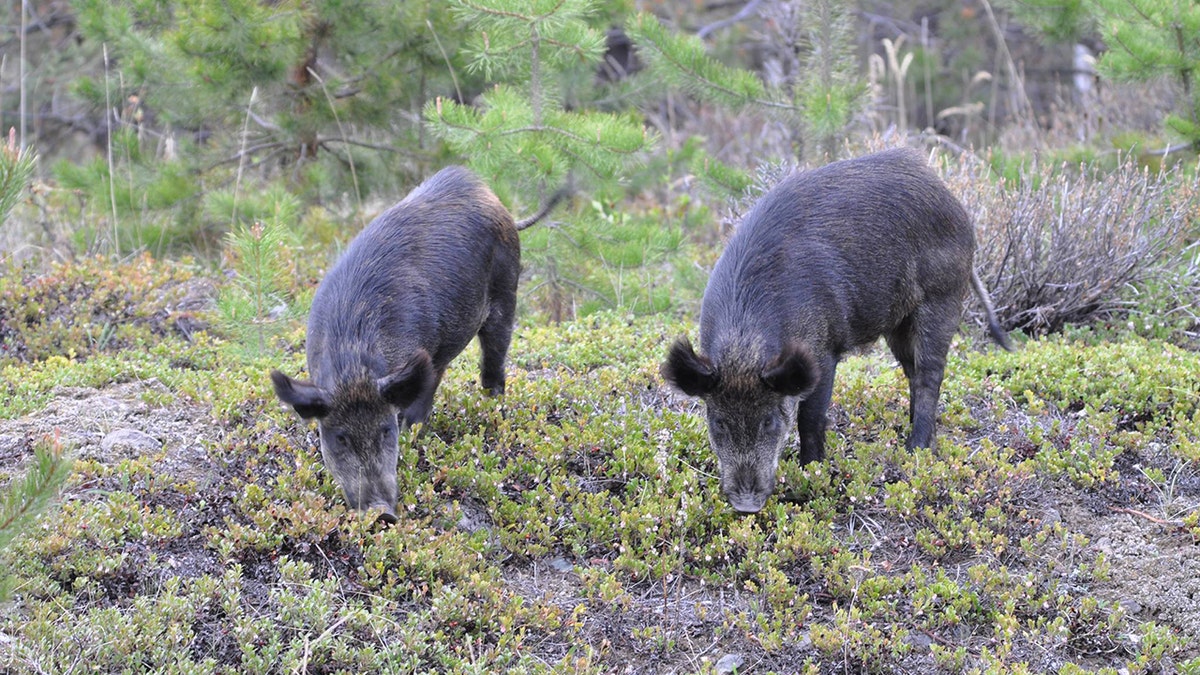
Two feral "super pigs" are photographed in Canada. These animals are dangerous for a number of reason, an expert told Fox News Digital. (Canadian Wild Pig Research Project)
"The only people who should be worried about this is anyone that lives in North America and eats meat, or eats vegetables, or eats any foods based on grain crops or spends time outside for any reason," he said.
The reason these "super pigs" are so dangerous is twofold, Brooks said.
First, they lack natural predators.
"Wild boar farmers were told to cross the wild boar with domestic pigs to make a bigger and longer animal."
"There are no native pigs in Canada," said Brook. "Anything that sounds like a pig and oinks like a pig has been imported."
The first European wild boars were imported to Canada in the 1980s to diversify that country's agriculture, said Brook.
While these boars sometimes managed to escape their fences, after the wild boar market peaked in 2001, some farmers had no more use for the animals.
COW CUDDLING AS STRESS RELIEF: IT'S ‘NATURALLY RELAXING,’ SAYS ANIMAL SANCTUARY
"Many producers cut their fences and let them go," said Brook.
Initially, it was believed that these boars "would never survive a Canadian winter," particularly in the harsh cold of the country's Prairie Provinces of Saskatchewan, Manitoba and Alberta, he said.
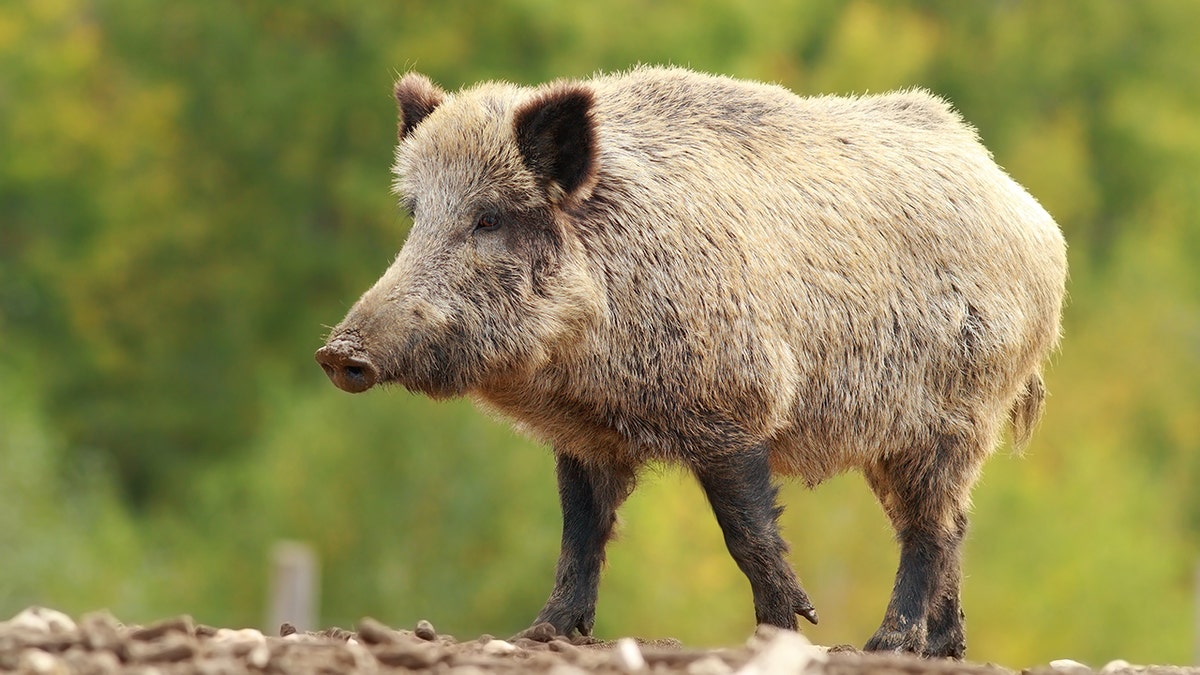
Wild pigs must be met with a "rapid and highly aggressive response" an expert told Fox News Digital. (iStock)
This was quickly proven incorrect — and it presents the second reason these pigs wreak havoc: science.
The "super pigs" began with a unique set of circumstances, said Brook.
PENNSYLVANIA WOMAN QUITS HER JOB AS MAKEUP ARTIST, OPENS FARM ANIMAL RESCUE SANCTUARY
"Wild boar farmers were told to cross the wild boar with domestic pigs to make a bigger and longer animal," Brook said.
He said a domestic pig has an extra set of ribs and has larger, more frequent litters.
"This was great for wild boar farmers, but [it] was a huge problem when [these animals] got into the wild," he said.
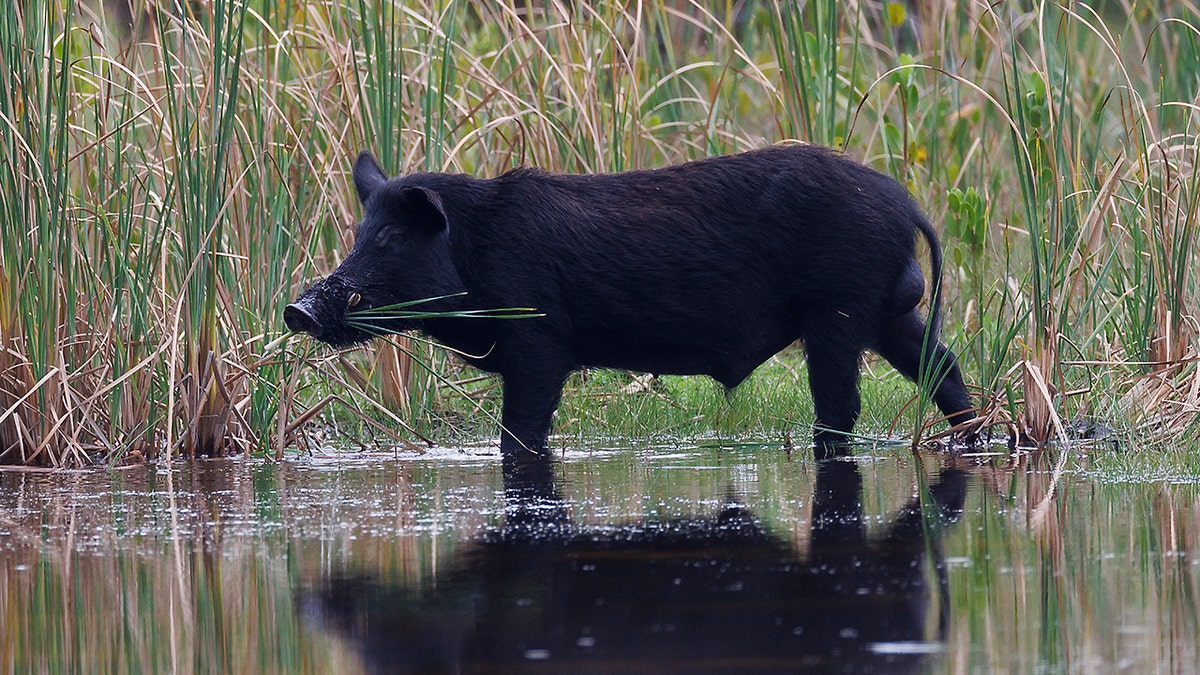
The European wild boar was bred with a domestic pig to create a "super pig" that can survive harsh winters and grows to large sizes. (iStock)
Additionally, a scientific concept called "Bergmann's rule" has come into play — to a potentially disastrous environmental end.
Bergmann's rule states that specimens in a species "will tend to be larger the farther north you go in their range, because being big is really important to survival in the cold," said Brook.
SHAKIRA AND SON ATTACKED BY WILD BOARS: ‘THEY’VE DESTROYED EVERYTHING’
This has proven true for the "super pig" in Canada, with the largest one discovered weighing well over 600 pounds, he also said.
The typical male feral hog is 220 pounds, says the website for the USDA National Institute of Food and Agriculture.
The animals' size, along with their intelligence, has made the "super pigs" capable of survival in harsh conditions and therefore hard to eradicate, said Brook. He noted they've even learned how to tunnel into snow caves to keep themselves warm.
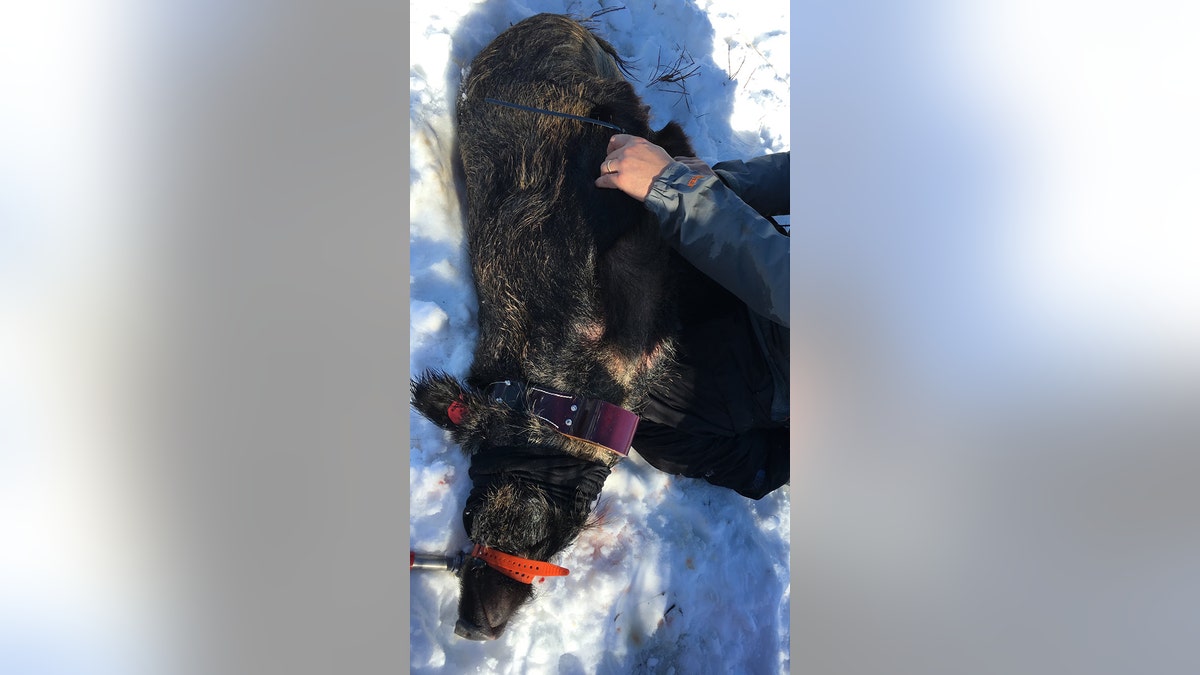
One way to eradicate pigs is to put a GPS tracker on a "Judas pig" and hope the pig joins a pack, said Dr. Ryan Brook. (Canadian Wild Pig Research Project)
"It is much warmer under than snow than on top of it," said Brook.
Eradicating these wild pigs must be done as "quickly as possible," he emphasized.
RISING POPULATIONS OF WILD HOGS WORRYING EXPERTS, MANY DEEMED 'SUPER-PIGS': REPORT
There must be "a rapid and highly aggressive response, just like dealing with cancer or forest fires — that is really the only option."
He added, "Once [the pigs] are established, you will have them for another 500 years."
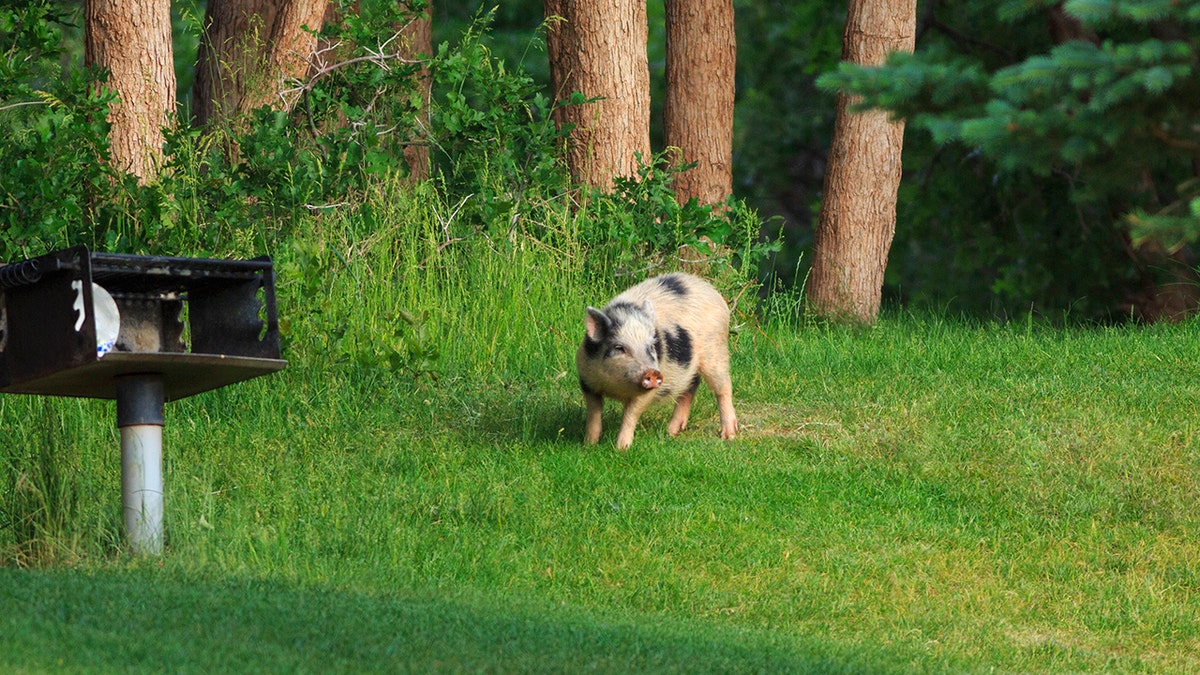
Feral pigs must be stopped before they can become established, said Dr. Ryan Brook of Canada. (iStock)
Traditional hunting techniques are not effective in pig eradication, said Brook.
"Large traps and tracking Judas pigs (wild pig with a GPS collar that will lead you to other pigs), ground removal teams, fencing and education are all key," he said.
CLICK HERE TO SIGN UP FOR OUR LIFESTYLE NEWSLETTER
Failure to quickly eradicate the pigs will result in devastation to the environment.
"I was warned by someone in Texas, ‘Stop whatever you are doing and start removing pigs and don’t stop until every single one is gone,’" Brook said.
CLICK HERE TO GET THE FOX NEWS APP
"I would echo that advice," he added.








































